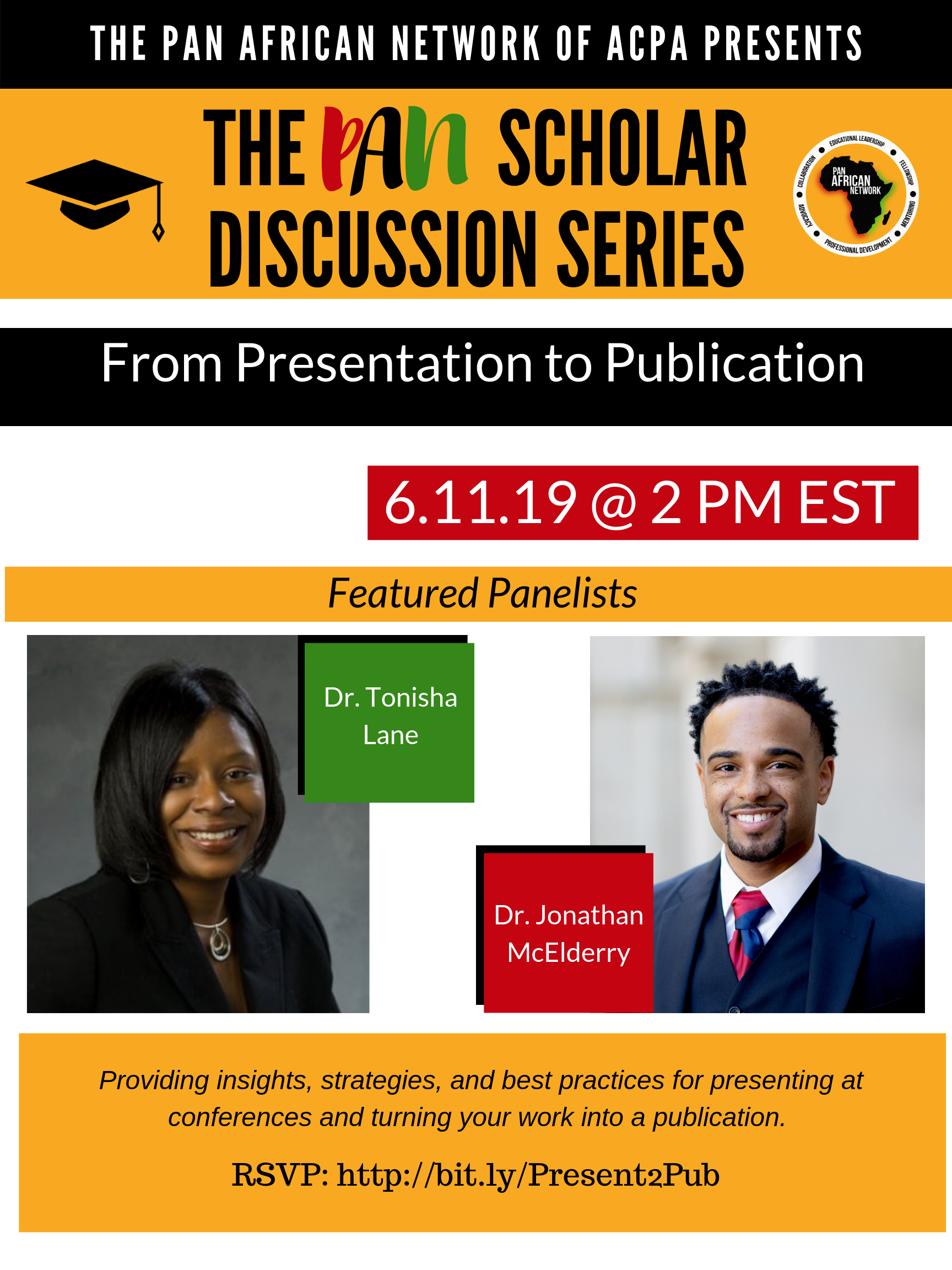Feel free to continue the learning with us by viewing one of the webinars we have hosted. PAN uses the webinar space as a creative means to connect our constituency, members of ACPA, and numerous partners who believe in the value of higher education to relevant topics and tools that will enhance our professional and personal lives.
Click the headers to get access to the webinars:
1. Addressing Food and Housing Insecurities Webinar - Hosted February 27th, 2019
An interactive opportunity to learn more about the ways different institutions are working to address food and housing insecurities for students.
The PAN Scholar Discussion Series (Spring 2019)
2. Decolonizing the Diaspora: Impact of the Strategic Imperative within the African Diaspora - Hosted April 9th, 2019
Join us to continue and expand upon discussions held during #ACPA19 in the Black Caucus sessions. We also will examine the ways the ACPA Strategic Imperative for Racial Justice and Decolonization (SIRJD) impacts and connects to the African Diaspora and ways of knowing

3. Being a Scholar Practitioner - Hosted May 14th, 2019
In this space, there is discourse surrounding the balance between existing in scholarly andpractitioner roles. We will unpack what being a Scholar Practitioner might mean for Black professionals and ways to create balance between research and working in student services.
4. From Presentation to Publication - Hosted on June 11th, 2019
The third session in our PAN Scholar Discussion Series, “Presentation to Publication,” discusses how to turn your conference presentation into a potential publication. Our panelists share their insights, strategies, and best practices to assist you in development as a Scholar-Practitioner.
5. Decolonizing Research - Hosted on July 29th, 2019
The fourth and final webinar of our PAN Scholar Discussion Series installation focuses on the concept of decolonization from the lens of research. "Decolonizing Research" challenges participants to consider how research goals, projects, and practices can align with equitable research agendas and decolonizing frameworks.




